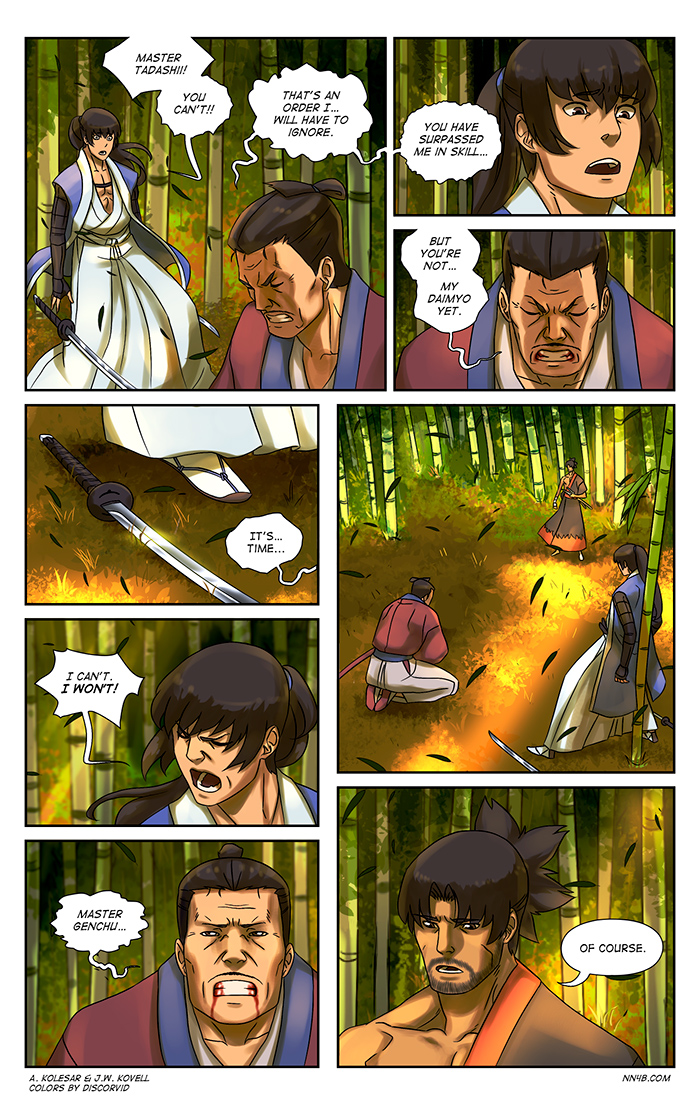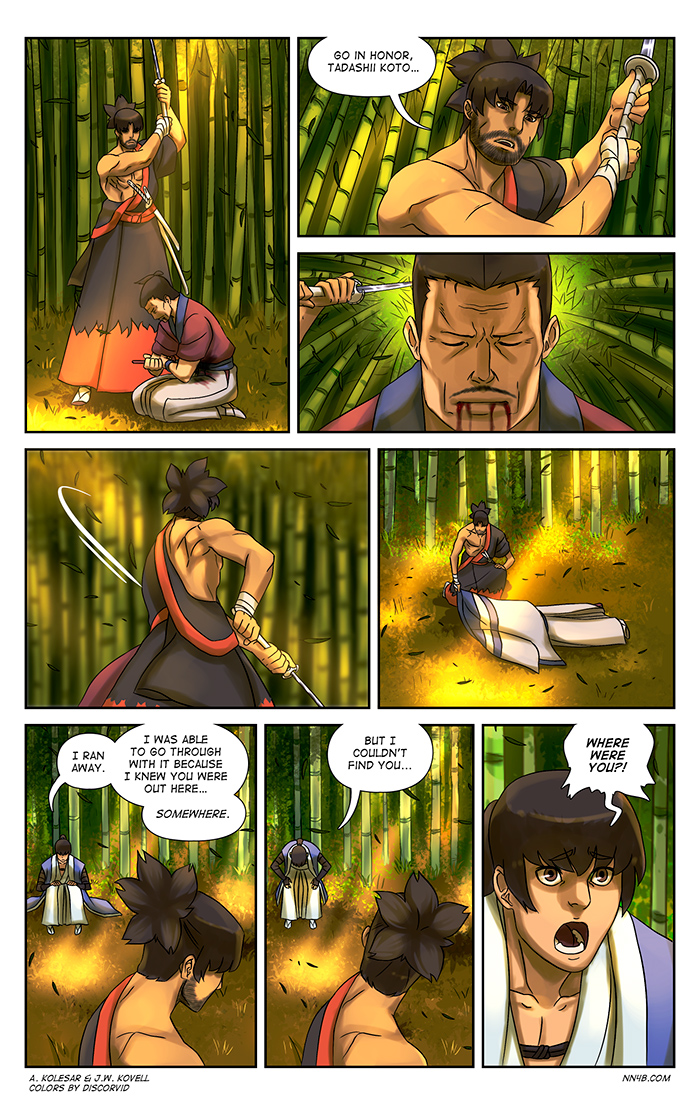
Yeah, Genchu! Where the heck were you??
Do you like scifi police procedurals? Well, Blade Runner 2049 is pretty rad. Although it’ s hard film to recommend because its oppressive sound design, slow pace, and exceedingly long run time of 2:49 hrs could be a major turn off to many.
But it’s so darn beautiful. I honestly enjoyed it more than the original Blade Runner, which is a movie I’ve always appreciated for the visuals and atmosphere but felt otherwise lukewarm on because I find it to be Harrison Ford’s worst acting to date (seriously, he’s so hard to watch in it), and there’s just not enough of the more interesting characters on screen, namely the replicants. 2049 could be seen as derivative, as it’s admirably mimicking the original film’s visual style, but also expanding on it and the world. A LOT of the narrative details are left abstract in the sequel, but the same is true in the original, probably even more so. What 2049 seems to do much better than the original is give us some empathy for the main character, as well as a more cohesive narrative overall (one that didn’t require seven different edits post theatrical release). I do want to bring up the controversial ambiguity of the first film and how it affects the sequel, so SPOILERS.
In the original film, Ford’s character, Deckard, is either a replicant or a human depending on if you ask the director or the screen writer. The sequel does not give a definitive answer to the question of his biological makeup, but does make it clear that Rick Deckard and his love interest Rachael, from the first movie, had a child. This is a big deal in the sequel as there is a replicant revolutionary movement brewing. The whole crux of the planned revolution is that replicants can have children, and therefore do not need to rely on humans for survival and can break free of enslavement.
The thing is, if Deckard IS a human, that means we still don’t know if replicants definitely can reproduce without humans. All we know is that female replicants, or maybe just Rachael specifically, can carry a pregnancy to term, but we don’t know if it requires a human male. If it does, the replicant revolution could potentially run into some problems. Since the replicant uprising is a major world building story thread, I wish 2049 had given us a specific answer on Deckard. Another solution would simply have a second example of two known replicants creating a child, although that might have made the significance of Deckard’s child less narratively important.
Personally, I’ve always thought Deckard was human, and the idea that he had attributes of replicants or could fall in love with one showed that the perceived difference between humans and replicants was more self imposed than a societal necessity.
Also, the manga Pluto is, like, incredible. I recently finished it, and was consequently filled with real human emotion. It’s basically an alternate universe Astroboy story with heavy themes and a bit of serial murder. I admittedly know little to nothing about Astroboy, but that did not stop me from enjoying Pluto. The premise is that humans have created advanced robotic lifeforms that now live alongside humanity. The more advanced robots look just like humans, but that hasn’t stopped good old prejudice from creating a bit of social strife. Among all this, a mysterious figure starts serial killing all of the world’s most advanced robots, one of whom is Astroboy (or Atom, as is his original Japanese name). The artwork is incredible and the story is gut punching. It’s like a mix of Bladerunner and Silence of the Lambs, with some classic shonen heroics thrown in for good measure at the end. I can’t recommend it enough! And if you hate reading manga, there’s an anime scheduled for 2020.
Published on by Alex Kolesar


This would be the perfect time for Yori to express his frustration with Genchu, wouldn’t it?
It’s easier than admitting that he (Yori) screwed up. On the other hand, he prevented Masuhiro’s murder, so maybe it was a good idea after all. O.K., so I’m a little prejudiced in Yori’s favor, so sue me. 😜
“right behind you, cleaning up your messes”
Its one of the better sequels to be sure. It stays faithful to the tone of the first film. And the plot is easy to follow. It jus might be a little long.
Ya, nearly 3 hours was a bit too long. At least it was a good 3 hours.
Unlike, *cough*transformers*cough*
One of the most tasteful drawing of a beheading if I might say
Genchu: “Gone fishing”
Mic drop for the thread, right there.
Yori: “But fish ain’t breakfast!”
Genchu: “Bird fish is.”
“I suppose the “official” explanation would be “Dead”, but I just went for a bit of a walk is all”
Genchu: “I was waiting for events to come to a head.”
Where did the white robe with blue stripe come from that is being used to cover Tadashii’s body?
Tadashii was wearing it a few pages ago. It’s his trademark coat that he wears on his shoulders like a cape.
http://nn4b.com/comic/713
Thanks for the clarification!
Lefties Rock!
Yar me maties, Pirate Pete here. Just wanted to say it be a dark tone to which this series be heading.
“if Deckard IS a human, that means we still don’t know if replicants definitely can reproduce without humans.” Not hard to get a few human male to get large number of female replicants pregnant as sperm donors, etc. But it does take extra children to make sure you can get enough viable offspring, eg mules aren’t good at having children.
Well, I mean, you’re still gonna need those human males, right? So you can’t wipe out humanity, and what does it even mean to be half human/half replicant? Maybe that’s some sequel material right there.
I hate to blemish this impactful page, but Genchu’s hands are the wrong way around on his sword. The left hand should hold the hilt at the bottom, not the right. This also results in his right arm looking rather awkward in panel 4.
Genchu has been a left handed swordsman since his second fight with Hirotomo.
http://nn4b.com/comic/281
It all makes sense now, carry on.
Lefties Rock!!
Here it is. your review of Blade Runner, I was looking forward to reading it.
I found the film to be quite good, but I think I have to lean towards liking the original more.
I went and watched the final cut 2007 I guess, I got a blu ray so I watched that, and an hour later went to see the sequel.
Pretty interesting how the creator of the new ones had such a lack of care for life, perhaps? as he so readily tossed them away at certain points. (always sad to see.)
When I first saw his hologram girlfriend I didn’t see her point but I guess she was there to push him later.
I did not see that twist at the end.
I thought it was confirmed that he was but I would still lean towards him being human if it wasn’t.
Really sad Rachel didn’t live long, the original blade runner was what, 2019?
I kind of like the message of the first film, and it’s length, better, but the sequel was definitely a fine film.
I can see why I’ve seen a lot of things saying it’s doing poorly in the box office. Long slow film, most movie goers will be bored.
It was good though, definitely a good film.
Yeah, the Blade Runner franchise is too niche, too slow paced, and too ambiguous for general moviegoers (ie. in people who hate thinking in a movie theater). So it was pretty much destined to not do great. Just goes to show how difficult it is to make a movie that’s not moronic that also appeals to the majority. It’s a sad world where Transformers 2 is nearly the highest grossing film ever, no wonder I have so little faith in humanity!
Yes, very true. Blade Runner is one of my brother’s favorite film’s, although I haven’t watched it many times.
you’d hate me if you knew the movie I watched the most in one summer.
I mean technically muppet christmas carol is my most watched film because I watch it every december as a tradition, but, second watched, ya. 😛 in my defense I didn’t own a gaming system or have many choices in movies at the time. I was young and foolish.
Anyway, I can’t believe Transformers 2 is the highest, that was the worst one in the series. (well I haven’t seen the newest one, but ya.)
But that’s what I’ve been saying. People don’t want to think, they just want action.
And while I too love a good action flick. I actually enjoyed the expendable films, but those films weren’t trying to be anything more then what they were.
When the newest diehard copied the formula it was awful. there was no feeling of struggle for survival or outsmarting the villains.
But I do really appreciate a smart film, I found blade runner 2049 to be quite good but it was what, 22 years after the first one? I feel like Deckard aged a bit too much for that time gap lol.
As far as harrison’s acting I didn’t think it was too bad, but I will agree he’s not as good as he used to be.
I thought he did a poor job in cowboys vs aliens to be honest. It’s hard for me to say how poor or well he did in star wars but I thought it was good enough.
Now, I should ask, a friend said it looked like they set up for another film but I was thinking this would be it.
Do you think they’d want to make a third or was this just a finishing of the story?
I really gotta check out the book now.
Running away, too
Yori looks so much like his brother on this page: a child let down by his hero.
It really brings home how young they all are.
What, Yori had a plan?